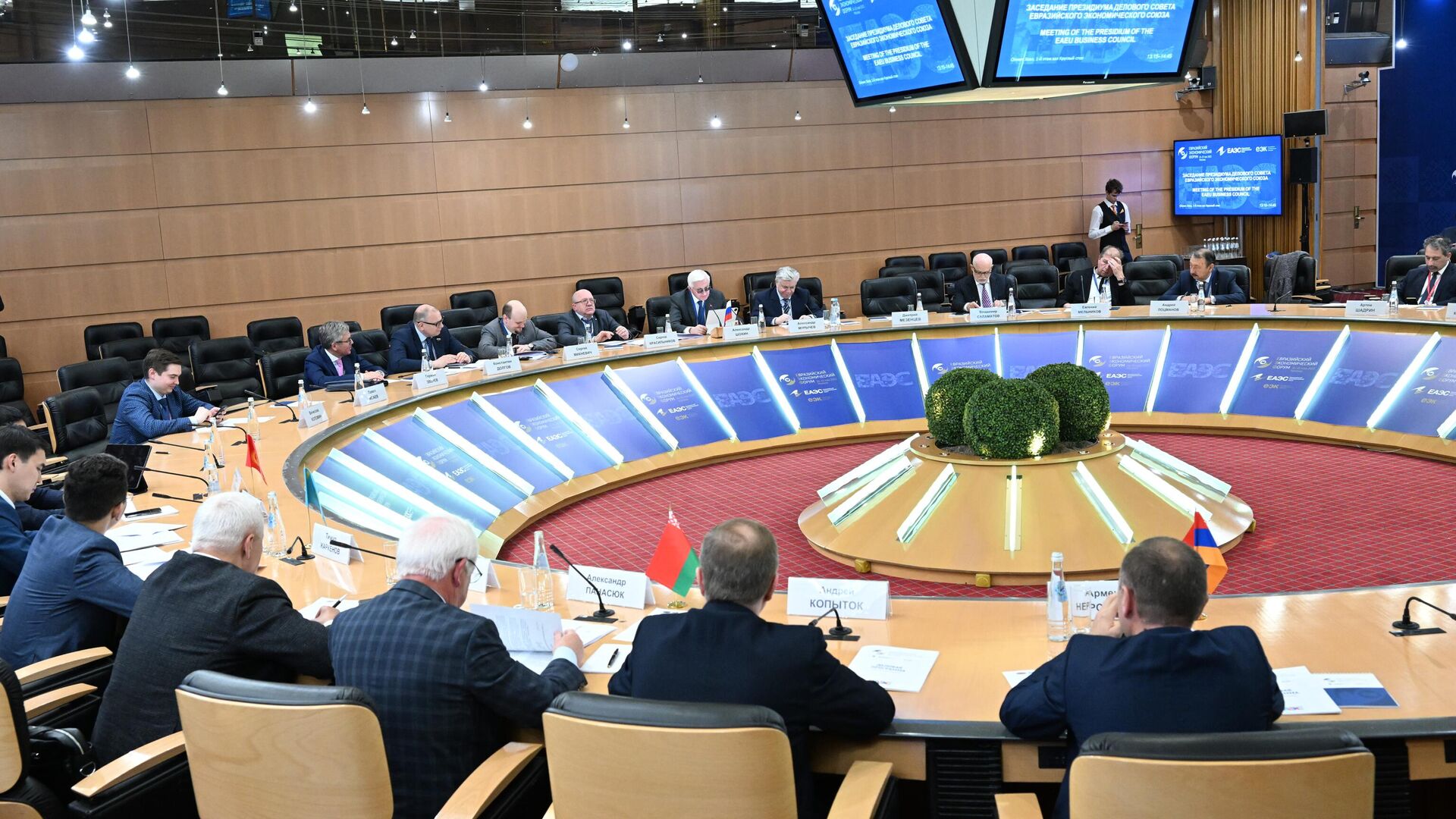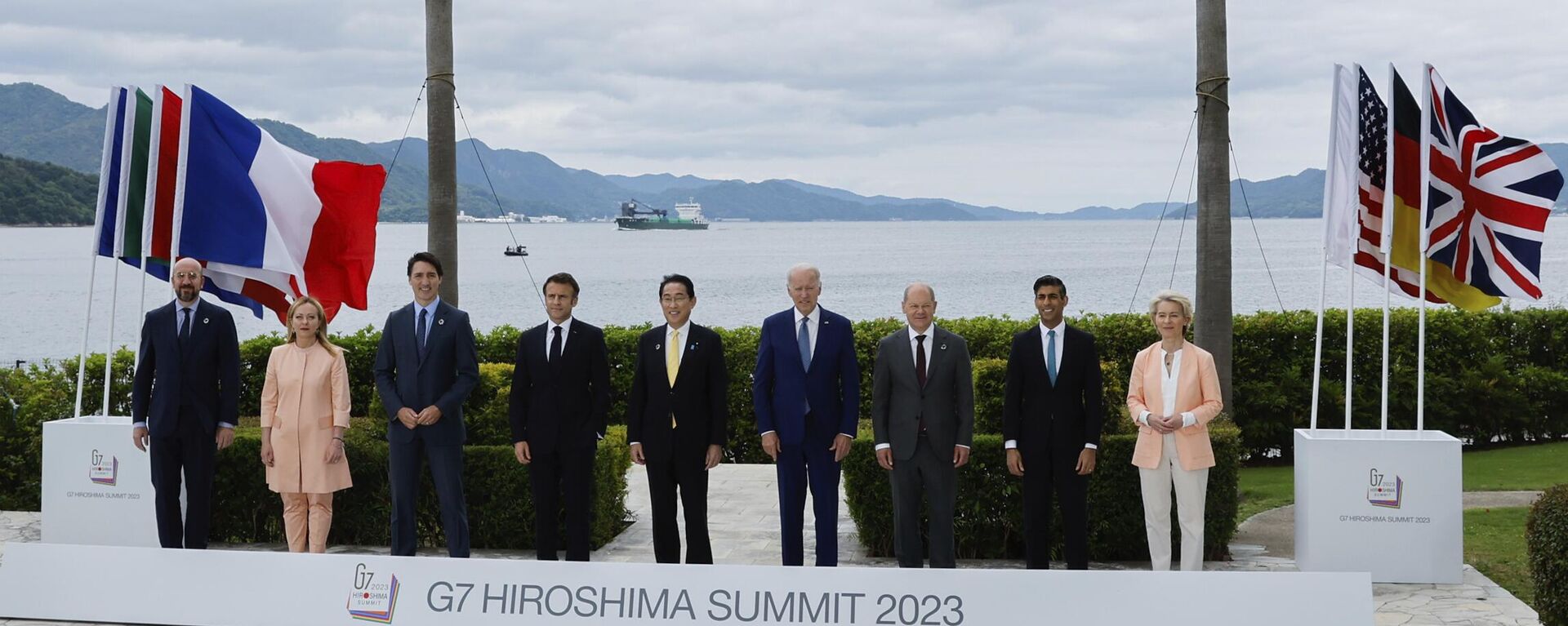https://sputnikglobe.com/20230525/growing-number-of-countries-flock-to-russo-asian-economic-political-blocs-1110582754.html
Growing Number of Countries Flock to Russo-Asian Economic, Political Blocs
Growing Number of Countries Flock to Russo-Asian Economic, Political Blocs
Sputnik International
While Western countries seem rather eager to try to cut Russia off from their economies, a growing number of nations from other corners of the world appear just as eager to gain greater access to the Russian economy by signing on to organizations like the Eurasian Economic Union.
2023-05-25T15:09+0000
2023-05-25T15:09+0000
2023-05-25T16:21+0000
world
business
eaeu
russia
china
central asia
economy
https://cdn1.img.sputnikglobe.com/img/07e7/05/19/1110584299_0:160:3072:1888_1920x0_80_0_0_b9a260a016da6d88189d8f70153bf915.jpg
The veritable economic war unleashed by the US and its allies upon Russia over the ongoing conflict in Ukraine has, among other things, resulted in a development that US strategists likely did not anticipate.Rather than see its economy crumble and begin to mull surrender, Moscow has weathered the onslaught by the West and instead moved to deepen economic cooperation with Asian, African, and Latin American countries, i.e. nations that comprise the so-called Global South.Chris Devonshire-Ellis, chairman of pan-Asia business management consulting firm Dezan Shira & Associates, told Sputnik that events such as the currently ongoing Eurasian Economic Forum may in fact be laying down the structure of the "great changes" Chinese President Xi Jinping told Russian Vladimir Putin about during their meeting in Moscow earlier this year.Pointing to international organizations such as the BRICS (Brazil, Russia, India, China, South Africa), EAEU (Eurasian Economic Union), and SCO (Shanghai Cooperation Organization), he noted how each of these entities has recently "gone through expansion and development with increasing numbers of countries joining some or all of these organizations."He also suggested that international investors should pay attention to the EAEU, a trade bloc that "has largely been ridiculed in the West as being moribund and slow moving," but which actually has been growing "despite a difficult start."The developments and trends highlighted by Devonshire-Ellis take place as the economies of Global South countries gain power and clout, while Western nations such as the US and UK now have to cope with the fact that their economies may be a lot less attractive to foreign investors than they once were.
https://sputnikglobe.com/20230521/moscow-says-g7-irreversibly-degraded-summits-decisions-politicized-1110505682.html
russia
china
central asia
Sputnik International
feedback@sputniknews.com
+74956456601
MIA „Rossiya Segodnya“
2023
News
en_EN
Sputnik International
feedback@sputniknews.com
+74956456601
MIA „Rossiya Segodnya“
Sputnik International
feedback@sputniknews.com
+74956456601
MIA „Rossiya Segodnya“
eurasian economic union, global south economies
eurasian economic union, global south economies
Growing Number of Countries Flock to Russo-Asian Economic, Political Blocs
15:09 GMT 25.05.2023 (Updated: 16:21 GMT 25.05.2023) While Western countries seem rather eager to try to cut Russia off from their economies, a growing number of nations from other corners of the world appear just as eager to gain greater access to the Russian economy by signing on to organizations like the Eurasian Economic Union.
The veritable economic war unleashed by the US and its allies upon Russia over the ongoing conflict in Ukraine has, among other things, resulted in a development that US strategists likely did not anticipate.
Rather than see its economy crumble and begin to mull surrender, Moscow has weathered the onslaught by the West and instead moved to
deepen economic cooperation with Asian, African, and Latin American countries, i.e. nations that comprise the so-called Global South.
Chris Devonshire-Ellis, chairman of pan-Asia business management consulting firm Dezan Shira & Associates, told Sputnik that events such as the currently ongoing Eurasian Economic Forum may in fact be laying down the structure of the "great changes" Chinese President Xi Jinping told Russian Vladimir Putin about during their meeting in Moscow earlier this year.
Pointing to international organizations such as the BRICS (Brazil, Russia, India, China, South Africa), EAEU (Eurasian Economic Union), and SCO (Shanghai Cooperation Organization), he noted how each of these entities has recently "gone through expansion and development with increasing numbers of countries joining some or all of these organizations."
"Discussing the cooperation mechanisms between them is a complex issue, however all are emerging nations with young populations possessing a dynamic mindset that global change is required. If the desire is there and the political will and freedoms are given opportunity, this is more likely to occur than not," mused Devonshire-Ellis, a seasoned veteran who has a 30-year investment and business career in China, Russia and Asia.
He also suggested that international investors should pay attention to the EAEU, a trade bloc that "has largely been ridiculed in the West as being moribund and slow moving," but which actually has been growing "despite a difficult start."
"The main reason that international investors should take note is that it [EAEU] offers access to nearly all of Central Asia as well as Russia, and that it has a lengthy queue of other nations wishing to sign agreements with it," Devonshire-Ellis explained. "It has nowhere near reached its full potential: investors should be looking to get a foothold, adapt, learn and progress before the competition for EAEU market share starts to arrive."
The developments and trends highlighted by Devonshire-Ellis take place as the economies of Global South countries gain power and clout, while Western nations such as the US and UK now have to cope with the fact that their economies may be a lot less attractive to foreign investors than they once were.



